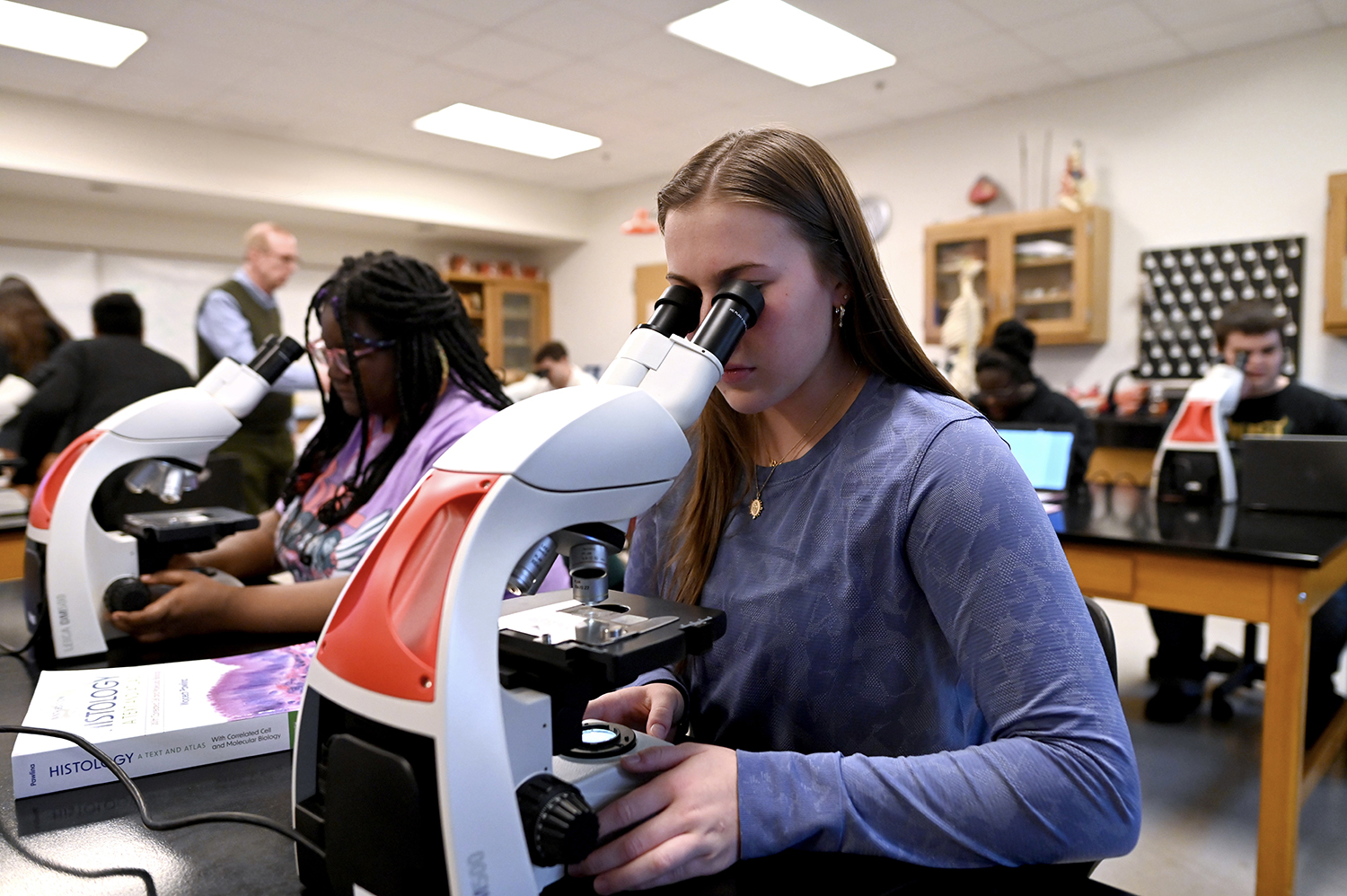Belhaven University’s School of Science and Mathematics has achieved a landmark milestone, securing multiple external research grants totaling more than half a million dollars—the first faculty research grants ever awarded in the university’s history.
Belhaven recently received confirmation that Dr. Ariel Kelley, associate professor of chemistry, and Dr. John Neiswinger, professor of biology, have both been awarded funding for their independent research projects. In addition, Dr. Rachel Roller, assistant professor of chemistry, collaborated with a faculty member at Millsaps College on a grant that will bring new scientific instrumentation to campus, expanding research access for Belhaven students.
These new awards join two previously announced grants: a $389,600 Mississippi AI and Technology Advancement Program (MAI-TAP) grant and a $75,000 INBRE startup grant awarded to Dr. Mariana Sá, associate professor of biology.
Kelley was awarded $75,000 over 18 months from the Mississippi Research Alliance (MRA), funded through the National Science Foundation’s Established Program to Stimulate Competitive Research (NSF EPSCoR). Her project, “Supramolecular Engineering of Nitrosamine Cocrystals for Risk Reduction,” explores innovative ways to reduce the risks associated with certain nitrogen-containing compounds.
“As a native Mississippian, I’m honored that my first grant comes from the Mississippi Research Alliance. This support will help create hands-on research opportunities for my students, giving them valuable skills and experiences for their future careers.”
The funding will support laboratory supplies, summer salary, a stipend for a summer research student, and travel for conference presentations. Kelley will begin her research next semester, employing a student researcher who will continue work with her during the summer term.
Neiswinger received $20,000 from the Mississippi IDeA Network of Biomedical Research Excellence (MS INBRE) for his project, “Clinically Based and Novel Mutagenesis on the Human Kinome.” His research will involve students beginning next semester, providing hands-on experience in molecular biology and genetic analysis.
“Enzymes like kinases have always been fascinating to me, and I am pleased to be able to work with them again and bring my students along for the ride,” said Neiswinger. “My students will each choose a kinase to make their own and work alongside me to mutate, express, purify, and test the activity of these enzymes.”
Collectively, the recent awards bring approximately $572,600 in new funding to Belhaven University, marking a historic moment for the advancement of faculty-led research and undergraduate scholarship.
“Research is one of the most effective teaching strategies because it transforms students from passive learners into active problem-solvers,” said Dr. Brandon Magers, professor and chair of chemistry and physics and faculty fellow of instructional technology. “Undergraduate research is effective pedagogy. It gives students ownership of their learning and shows them that discovery isn’t just something found in textbooks. It’s something they can do themselves.”




